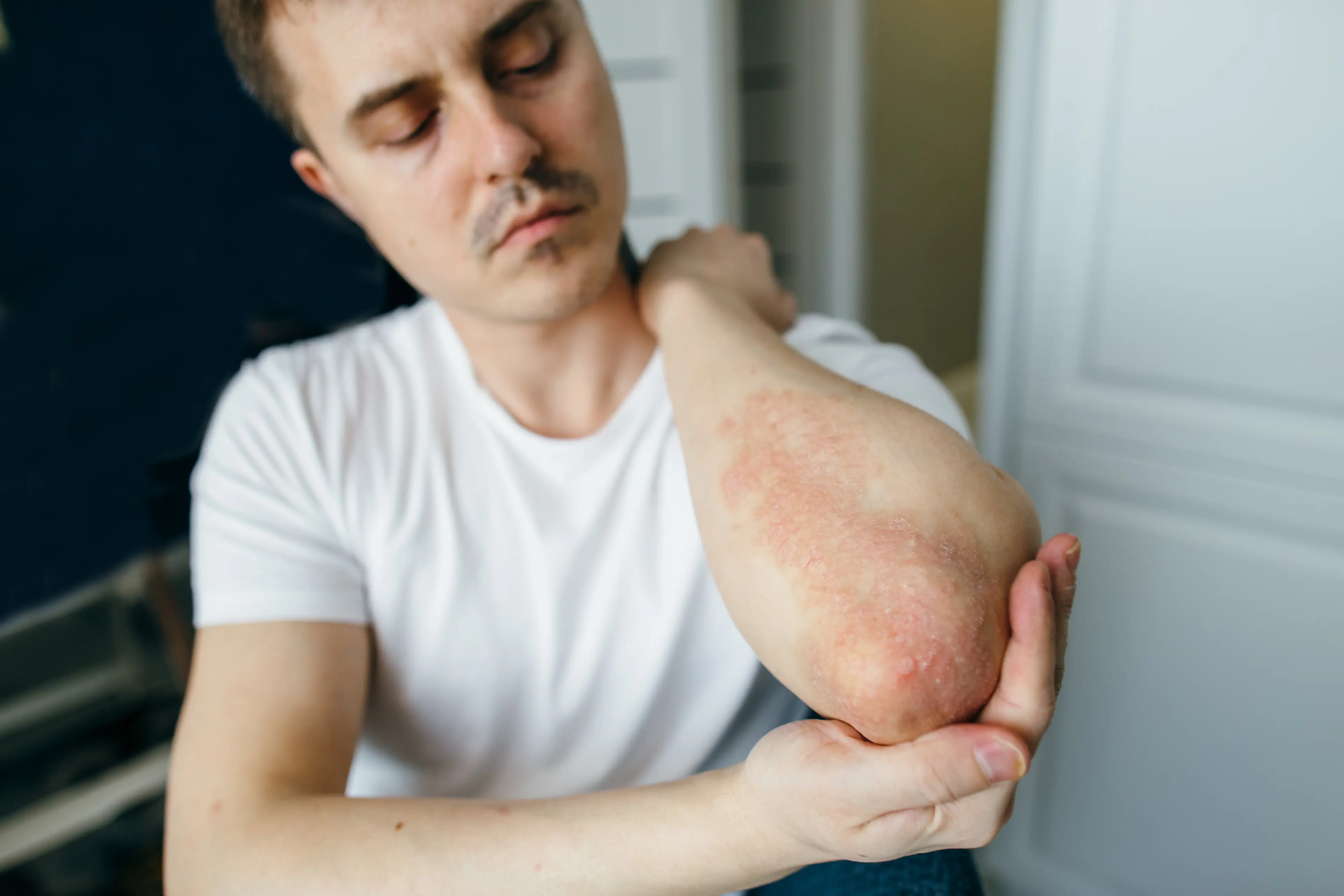
Hundreds of thousands of people in the UK are suffering from symptoms of an 'invisible disease' that has now been linked to a common skin condition suffered by millions worldwide.
The research, conducted at Uppsala University in Sweden, was published this week and has examined the relationship between psoriasis and having a 'leaky gut'.
This is a condition that leaves you more open to bacteria and harmful substances leaking through the lining of your intestines and making you sick.
From there, the issues with leaky gut and psoriasis have now been linked to the so-called 'invisible' condition known as Crohn's disease, with those suffering from leaky gut and psoriasis more open to this disease.
Advert
Crohn's and colitis
Maria Lampinen from the university's Department of Pharmacy was the lead author of the new study published this week.
"Previous research has also shown that people with psoriasis have more gastrointestinal problems than the general population." she said.
"However we didn’t know much about why this is the case. With our study, we can now show that people with psoriasis often have invisible inflammation in their small intestines, with an increased risk of what’s called leaky gut."
The research explains that the presence of leaky gut in a person's digestive system may explain why psoriasis sufferers often have gastrointestinal problems.
They are, as a result, more prone to developing the 'invisible' disease known as Crohn’s disease.

Given it happens inside your body and can't be seen to anyone else, Crohn's is a type of inflammatory bowel disease (IBD) that can impact someone anywhere in their digestive tract.
We're talking from your mouth right down to the other end.
It is similar to ulcerative colitis, a different inflammatory bowel disease that is limited to a person's colon and rectum and usually impacts the entire region.
On the flip side, Crohn's can become inflamed in just a section of the digestive tract with the remaining parts healthy.

Symptoms of Crohn's disease
Symptoms of Crohn's disease can be experienced in flare ups for weeks or months on end, especially if you aren't on treatment.
According to the NHS, the main symptoms of Crohn's disease include diarrhoea, which may come on suddenly. Stomach aches and cramps are also experienced, most often in the lower-right part of your stomach.
You could also experience blood in your poo; tiredness (fatigue); and weight loss. However, you might not have all these symptoms, the NHS stresses.

Other symptoms that people may experience include a high temperature; feeling and being sick; joint pains; sore, red eyes; patches of painful, red and swollen skin that are usually on your legs; and mouth ulcers.
You should book an appointment with a doctor if you or your child have:
- blood in your poo;
- diarrhoea for more than seven days;
- frequent stomach aches or cramps; and / or
- lost weight for no reason, or your child is not growing as fast as you'd expect.
You can read more on the NHS' website here.